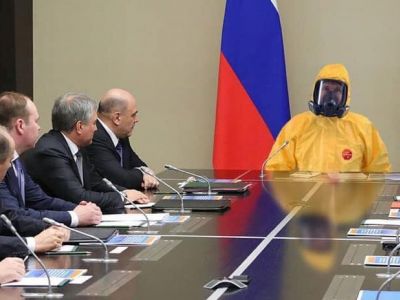Prof Neil Ferguson was the first to sound the alarm – and perhaps provide a clue as to how the prime minister, the health secretary and the chief medical officer all became victims of the coronavirus pandemic.
Ferguson is the scientist whose research at London’s Imperial College led to the government’s dramatic pivot in its handling of the outbreak.
He was with
Boris Johnson on Monday last week, along with many others involved in the government’s response to the crisis. The following day, Ferguson noticed he had a slight cough and was feeling unwell.
On Wednesday he tweeted: “Sigh. Developed a slight dry but persistent cough yesterday and self-isolated even though I felt fine. Then developed high fever at 4am today. There is a lot of Covid-19 in Westminster.”
In interviews from his home, Ferguson made it clear that SW1A was essentially a ticking time bomb in terms of the virus’s spread.
How Johnson got the disease may never be known – and he,
Matt Hancock and Prof Chris Whitty will all receive good wishes from the Westminster village and beyond. But over the past few weeks, Johnson has appeared to take a relaxed attitude to his own health. On 3 March he scoffed at the suggestion he should stop shaking people’s hands.
He said had been shaking hands “continuously”, even at a hospital with coronavirus patients. Until last week journalists were still attending press conferences with the chairs arranged as normal with no distancing in between.

 www.is.fi
www.is.fi









